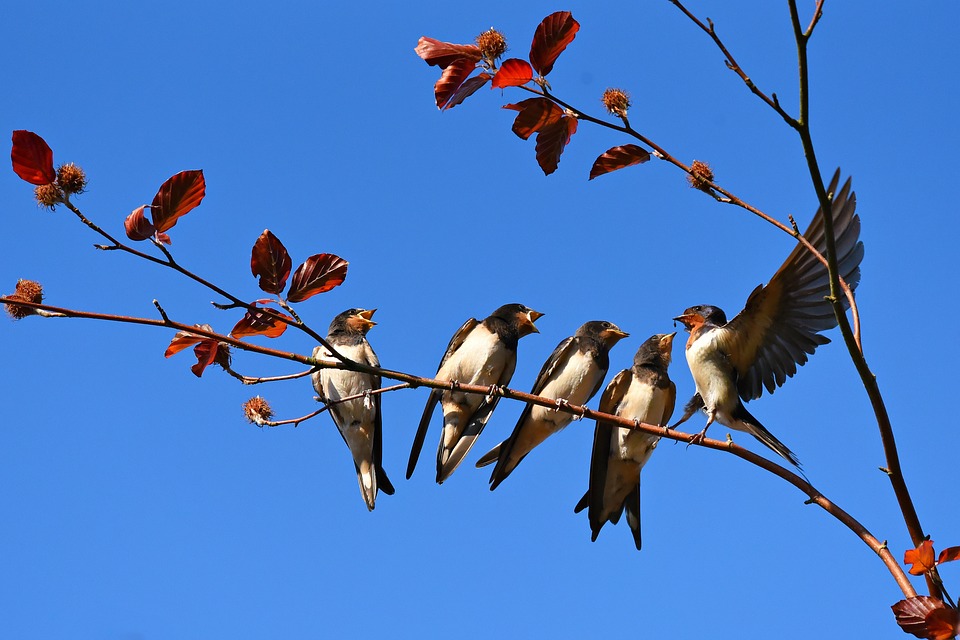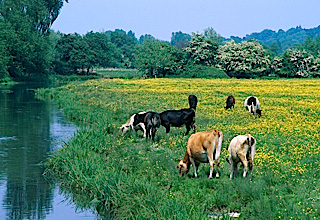Organic livestock farming is the only CAP supported agri-environmental (AES) measure that has been shown to correlate with higher bird numbers. This finding comes from newly published research (Santangeli et al 2019) which considers Finland and its wild bird population.
Researchers used six years of data on 46 bird species from the Finnish landscape. They found that organic livestock farms support both migratory birds and insect-eating birds. Of all the supposed biodiversity-boosting farmland measures supported by EU via the Common Agriculture Policy, organic livestock farming was the only one that significantly correlated with higher numbers of wild birds.
In fact, organic livestock farming also out-performed organic cereal farms.
The researchers assessed the country-wide impact of several CAP AES measures on bird abundance, and found “a positive impact of organic animal farming on abundance of all farmland associated birds”.
What’s perhaps more surprising was the impact of the other agri-environmental measures outside of organic livestock supports: “none of the other AES measures considered for study did show any relationship with bird abundance”.
This research is interesting on a number of fronts. It considered a wide range of bird types, over a large area, and multiple AES measures. The team controlled for relevant landscape and land-use factors – 22 landscape plus two other variables were controlled for. They explored “whether the effect of specific AES measures on farmland birds differs based on species traits such as species main habitat, diet, migration ecology, and Red List status within the EU.”
Nine AES measures, based on their likely impact on birds, were selected: environmental grassland, winter cover through light tillage, through stubble or through vegetation (three separate AES measures), biodiversity field, biodiversity and landscape management field, buffer zones, organic crop farm and organic animal farm.
In their discussion of the findings, the researchers pointed to the following traits of organic farming as possibly beneficial for bird populations. “organic production is the only full-farm system support scheme that stipulates a coherent package of several management obligations”. The organic livestock grazing season is longer, more grass-based and more time is spent outdoors – which correlates with the bird’s nesting season too.
Science daily reports: “On all organic farms, production animals have access to pastures. The majority of organic animal farms in Finland are cattle farms where cattle are able to graze during summer months. Thanks to their complex vegetation and presence of manure, pastureland is favoured by many insects, thus also providing more food for birds. In fact, the study showed that organic animal farms were particularly beneficial to insectivore birds, such as swallows and starlings.”
Use of antibiotics is restricted in organic, and the researchers pointed to studies which suggest this may increase invertebrate numbers, which some birds feed on. Citing Irish research on organic dairy farms, they note that “presence of animals and their dung on pastures and use of manure have been proven to boost abundance of aerial as well as soil invertebrates, which represent a key food source for most farmland associated bird species, particularly during the breeding period.”
“Due to decreasing numbers, the common swallow and house martin have been declared as endangered species in Finland, a situation that could be improved by increasing the share of organic animal farms. This is something which everyone can influence through their daily purchase decisions and by favouring organic produce,” says Aleksi Lehikoinen, an Academy of Finland research fellow at the Finnish Museum of Natural History Luomus, which operates under the auspices of the University of Helsinki.
From a policy perspective, this study is important. Considering what is spent on AES – E20 billion in the 2007-2013 CAP period – that none of the measures other than organic livestock farming shows any positive correlation with increased bird populations is an indictment of these schemes and their efficacy.
Support for organic farming rarely equates to the level of organic farming in any given EU country – if organic farming is at 3%, the sector is typically lucky to get 3% of the available agri supports. There are usually targets for growth of organics, but rarely the required extra supports put in place to get there.
This research also backs the land sharing over land sparing perspective. Supposedly, livestock farming in general, and organic livestock farming in particular, take up too much space, depriving nature of the land area it needs to flourish. And yet, these birds rely on organic animal fields – for food, for nesting – more so even than any other field type or broader measure.
Beware too of the unintended consequences of a shift over to conventional crops and horticulture, in a world of reducing its meat consumption for environmental reasons. While rewilded landscapes would certainly support lots of life too, organic animal farming has a strong biodiversity case to make.
A version of this article appeared in the Irish Examiner Farming.






